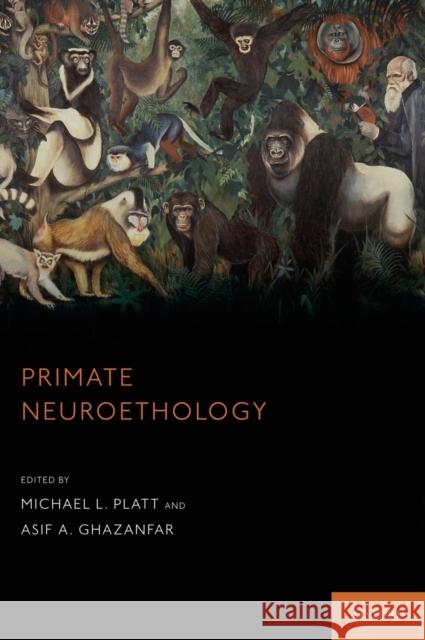Primate Neuroethology » książka
topmenu
Primate Neuroethology
ISBN-13: 9780199338900 / Angielski / Twarda / 2013 / 704 str.
Why do people find monkeys and apes so compelling to watch? One clear answer is that they seem so similar to us--a window into our own minds and how we have evolved over millennia. As Charles Darwin wrote in his Notebook, "He who understands baboon would do more toward metaphysics than Locke." Darwin recognized that behavior and cognition, and the neural architecture that support them, evolved to solve specific social and ecological problems. Defining these problems for neurobiological study, and conveying neurobiological results to ethologists and psychologists, is fundamental to an evolutionary understanding of brain and behavior.
The goal of this book is to do just that. It collects, for the first time in a single book, information on primate behavior and cognition, neurobiology, and the emerging discipline of neuroethology. Here leading scientists in several fields review work ranging from primate foraging behavior to the neurophysiology of motor control, from vocal communication to the functions of the auditory cortex. The resulting synthesis of cognitive, ethological, and neurobiological approaches to primate behavior yields a richer understanding of our primate cousins that also sheds light on the evolutionary development of human behavior and cognition.










